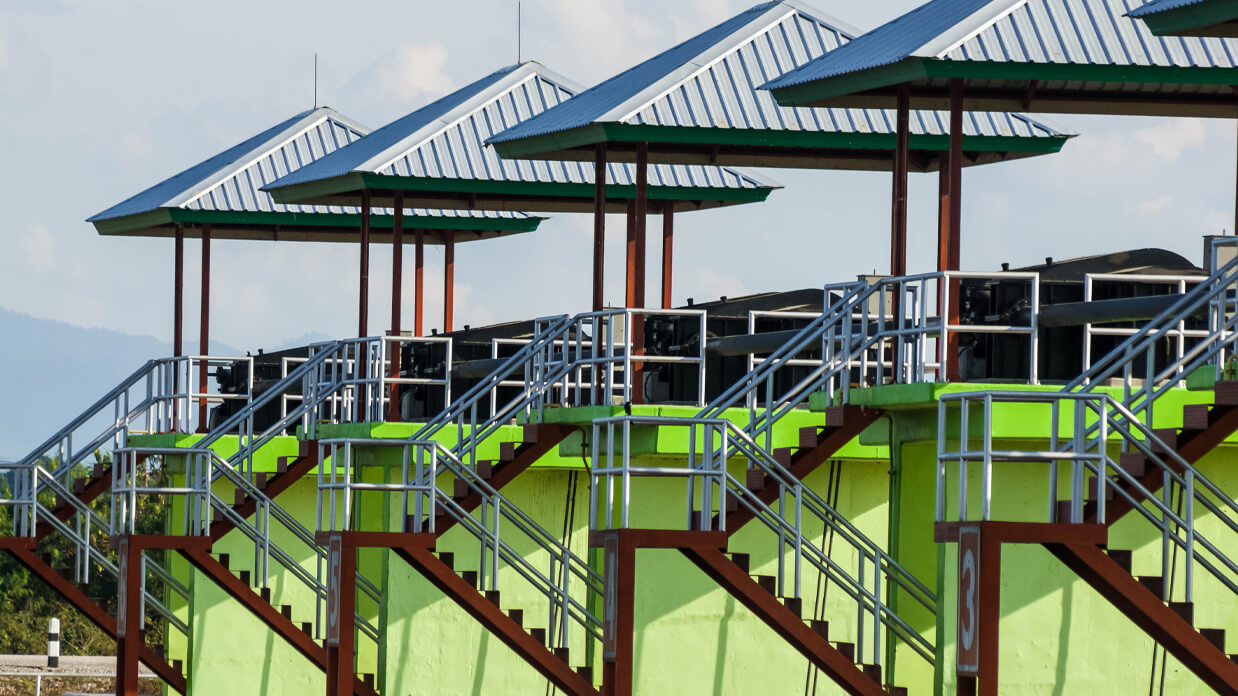We use first and third-party cookies for analytical and statistical purposes and to show you personalised advertisements based on a profile compiled from your browsing habits (e.g. pages visited). For more information, click on our Cookie Policy. You can accept all cookies by pressing 'Accept', you can reject all cookies by pressing 'Reject', or you can customize your choice by pressing 'Manage'.
Events for CFOs: learn from advice from networking experts.

Online or in-person event? Both are worthwhile and have their own merits. But there is one thing they share. If we plan for the event carefully and set objectives, the results will contribute that intangible to which we owe almost everything: social capital, which we treasure throughout our careers, both externally, in our environment, and internally, within the company.
Attending events breaks up our daily routine, opens up new horizons and enables us to find out about good practices and innovative ideas in other organisations. They are an ideal occasion forstrengthening our personal brands. To achieve success, you have to choose the event carefully (quality versus quantity), prepare a plan and use social media wisely.
This is what you have to do before, during and after the event to get the most out of these experiences that can be so rewarding for your career.
Before the event: make yourself visible and build expectations

We only make progress when we set goals and prepare thoroughly. Attending an event is not just a break or an opportunity to get some fresh air. It is a lever for growth.
Here are some tips for how to generate value for yourself from the time you spend in the company of people with different profiles, and how you can add value and enrich your network of relationships.
- Let people know you are going in your social networks. Do this on LinkedIn and Twitter, preferably, and in your WhatsApp, Slack and Womenalia groups, and any other tools you use to share with your colleagues. One of your contacts is bound to be going to the event as well. This will help you get building your network days or even weeks beforehand. Don't forget LinkedIn CFO groups: these are the most suitable place to announce you are going to such events, so you can find potential travelling companions.
- Prepare a minimum communication plan. Find the hashtags for the event in the official profiles of the organisers and mention that organisation in your social media posts. Remember those mentions and hashtags for your future posts. Remember to pack some merchandising items for your company in your bag or suitcase, such as pens or mobile phone chargers, so you can hand them out when someone is in need.
- Choose your programme carefully. You can't go to everything at a multi-day conference. Choose the best options based on the quality of the participants and what you can contribute through your questions and contributions to the discussion. If you know your programme, use your social media posts to mention the speakers you are looking forward to seeing. That way, they'll know who you are when you raise your hand.
- Plan the logistics. Try to stay at the main hotel for the event and try to arrange to meet your contacts. Think about offering to share transport, if that is possible. You might even buy some extra tickets you could hand out to someone.
- Set your objectives. You don't network just for the sake of it. Some people network to find customers, others to learn from the best, search for new job opportunities or forge alliances with other companies. Remember that transactional networking (finding customers) is not the same as relational networking (building your network). Every event is a world of its own. You can use it for just one of your objectives or for all of them.

During the event: prepare what you are going to do
- Visit the stands of the sponsors. This is particularly useful if you've just entered the venue for the first time and don't know anyone yet. This is an opportunity to meet the visitors and find out about new developments by brands in your sector. This is bound to lead to your first coffee. Remember to have your accreditation clearly visible. And never forget that everyone is feeling the same as you: perhaps they don't know anyone.
- Prepare your questions. Don't improvise. Prepare your interventions carefully. Always introduce yourself before asking a question, and try to add value for the audience with it. Try not just to find out what the speakers think: briefly summarise your experience and your vision of the future. Ask for the floor first so your turn isn't when people are starting to leave. This way, the experts will know you by the end of the session and you will be able to talk to them in confidence.
- Implement your communication plan. In addition to having well-prepared questions, note the most interesting comments by the speakers. Take a photo and share it on your professional social networks with the hashtags for the event. But always include some inspiring words. There is no need to overwhelm your contacts: one or two highlights is enough.
- Get involved in online chats. The organisers of online events often set up a chat where attendees can ask questions and make suggestions. Use these to ask your questions, but always remember to introduce yourself.
- Parallel programme. In-person events often include a cultural visit or leisure activity from a sponsoring company. Sign up for these, if you have time. They are an opportunity to make contacts in more relaxed settings.
- And network. Multi-day programmes are often so extensive that it is not possible to go to everything with the same people. There are times to be with some and times to be with others. With three meals a day and coffee breaks, you will have time for old friends. In work sessions it is better to broaden your horizons and use your contacts to introduce you to new people.
After the event: share your impressions and consolidate your network
- Share your impressions. Post in your networks to summarise the event. What caught your attention? What was the most important thing your learned? Mention some innovative technology or the conclusions of the congress, seminar or conference. Remember to use the hashtags and mention the people, institutions and companies you cite in your post. And do this the same week: don't postpone it for another day.
- Consolidate your network. After the event - on the return journey, for example - it is time to find the people you have been listening to and met, and to make contact. You can do this through professional networks (such as LinkedIn) and the programme for the event. Send them a text or InMail (through LinkedIn) message to commemorate having met them and to arrange future contact. The golden rule of networking is to nurture your garden once you've planted it.
- Get your team together. “Exhausting but very interesting”. This is suitable when you bump into someone in the corridor or when you arrive in the office. But the occasion calls for more than this. Get your team together to share what you got out of the event. If you consider it necessary, share with the entire organisation by circulating an executive summary to inspire and motivate your colleagues on the management committee.

Do you still need to convince your boss?
It's a shame, but some people think attending external events is a distraction for managers: your day-to-day activities don't get done, you have to delegate your functions, and you are unavailable. But what is seen as an inconvenience is really why you should attend. It is an opportunity to grow, to explore new ways of approaching problems, and, of course, to meet professionals to work with or hire in the future.
If you need to convince your boss to let you attend a professional event, the World Finance Forum (WFF) - one of the major professional networks for finance managers - suggests you can get their approval by invoking the following benefits:
- Breaking the treadmill: the event will get you out of your daily routine, rejuvenate you professionally, and focus your performance by exposing you to best practices. Networking enriches your network of allies, potential partners and future signings.
- Collaborating: attending an event as a team - being together in a different setting - is a source of team building and an opportunity to unleash creativity, making it easier to discover more about external and internal talent.
- Generating new ideas: meetings people with different profiles stimulates innovation and facilitates the interchange of perspectives. The WFF says they are an opportunity to solve challenging problems through the experience of others.
When can you put these tips into practice?
We are holding the second Bankinter CFO Forum in February 2023. Under the banner“ Evolution, challenges and future of the CFO”, our first forum presented the CFO Frontline Report, on the development of financial management in Spain, with presentations by the CFOs of Endesa, Opticalia, Barceló, Green Energy and Bankinter.

